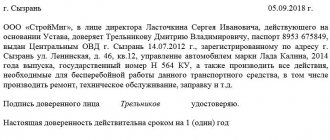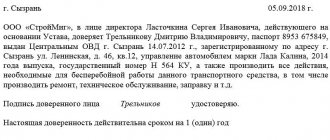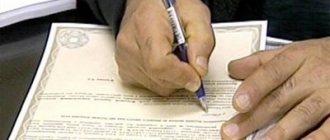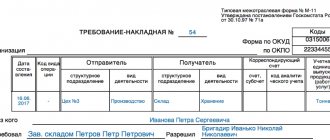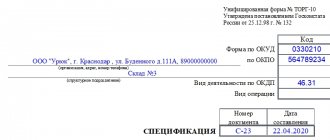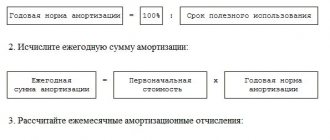Free legal consultation by phone:
8
An irrevocable power of attorney is issued for the purpose of fulfilling or ensuring the fulfillment of obligations by a representative, characterized by the fact that it cannot be canceled in any way, except for the expiration of its term or the occurrence of specific circumstances that are provided for in the text of the document.
It can, of course, be canceled from the moment the obligations for which it was issued were fulfilled. The institute is quite new for Russian legislation and was introduced in 2013.
What is an irrevocable power of attorney in civil law?
Article 188.1 of the Civil Code of the Russian Federation defines the right of a legal entity or individual entrepreneur, with the help of an irrevocable power of attorney, to transfer to a representative, in respect of whom they have clearly defined obligations, some of their rights and obligations, so that he can independently perform the actions necessary to protect his interests. Such a document is valid for the entire period specified in it, starting from the date of issue.
Reference! Before Article 188.1 of the Civil Code of the Russian Federation came into force in 2013, in order to protect the rights of the “creditor” of the attorney from the bad faith of the “debtor” of the principal, the text of the power of attorney issued to him within the framework of the power of attorney agreement stipulated penalties for the possible revocation of the document before the date specified in it contains expiration dates.
From the point of view of civil law, an irrevocable power of attorney protects the interests and property of the representative, since the represented does not have the opportunity to cancel the document issued by him before his “debt” is returned to the attorney acting as a creditor.
What it is?
An irrevocable power of attorney is a fundamentally new type of regulatory acts. In the civil legislation of the Russian Federation, this concept was introduced in September 2013 (Article 188 Part 1). It is drawn up to ensure the fulfillment of obligations related to running a business.
Such a document, unlike other types of trust documents, cannot be challenged in court, and upon expiration of the validity period specified in it, the document is canceled. Thus, this act is intended to protect the rights and interests of the trustee.
Where is it used?
The issuance of an irrevocable power of attorney in civil law makes it possible, without formalizing a purchase and sale transaction that complies with the classical norms of civil law, and paying expenses for it, to transfer the property of the debtor to the disposal of the creditor, thus temporarily transferring ownership of property or material assets from the “debtor” to the principal his “creditor” representative.
With the help of an irrevocable power of attorney, an attorney can obtain the right to manage the property of the principal, which guarantees him the fulfillment of obligations on the part of the latter. An irrevocable power of attorney issued by the seller to the principal allows the buyer's attorney to remove the goods from the warehouse. Transfer of powers without the right of revocation regularly occurs in corporate relations.
A shareholder who is a legal entity can, for example, take part in a general meeting of shareholders and even vote if a shareholders agreement is signed.
Useful video
Watch a video on the topic:
To avoid abuse, an ordinary or general power of attorney must be revoked in a timely manner. How to properly issue a notification - read on our website.
Features and powers
An irrevocable power of attorney must be drawn up on behalf of the principal so that with its help the attorney can fulfill the obligations of the principal in relation to himself or third parties in whose interests he carries out his activities. In such a document, in accordance with legal regulations, the following information must be specified:
- Name, place and date of issue of the power of attorney (to protect yourself from forgery of the document by an unscrupulous attorney, the date is written only in words).
- A list of delegated responsibilities of the principal in relation to his representative or third parties in whose interests he acts, and his rights arising from this.
- Details of the principal and attorney. The text of the document must include information about the state registration of an individual entrepreneur or legal entity (TIN, OGRN, KPP), passport data and the position of the person representing the legal entity. In the case where the attorney is an individual. person, only his passport data is entered into the power of attorney.
- If it is assumed that such a document can be revoked, its text must indicate the circumstances under which this will become possible.
- The period during which the power of attorney will be valid.
- Signatures of the person being represented and the representative. The signature of a representative is a generally accepted formality that has no legal basis.
- Notarization. You can clarify the conditions and list of documents that need to be provided directly at the notary’s office.
Attention! An irrevocable power of attorney must indicate that the ability to revoke it is limited (at best). It is also mandatory to have such a document certified by a notary office.
The list of powers listed in an irrevocable power of attorney depends on what obligations the principal must fulfill in relation to the attorney or the persons on whose behalf he acts. For example, a power of attorney to conduct business and represent the interests of a businessman (the so-called general) gives the attorney the right to protect the interests of the person represented in relations with organizations and ordinary citizens, municipal and state bodies.
In order for an attorney to be able, for example, to take advantage of the rights transferred to him through a power of attorney, he must have the right to sign, be able to submit applications, request and submit documents, enter into contracts, and dispose of the principal’s property.
Guarantor and return of power of attorney
The refusal of the guarantor, notified of the cancellation of the power of attorney, to return it to the principal is a reason to contact law enforcement agencies: legally, this can be regarded as an attempt at fraud. You can first draw up an act of refusal to return the power of attorney and make a note on it about the guarantor’s refusal to sign it, if it follows. Signatures of witnesses to this action will be required.
What if the representative disappears? In cases where the representative avoids contact and his whereabouts are unknown, it would be legally correct to send a notice of revocation of the power of attorney to any of the addresses previously specified by him, making sure to keep the delivery notice. From the point of view of the law, it will be considered received.
FOR YOUR INFORMATION! Third parties are not obliged to verify the good faith of the guarantor and the validity of the power of attorney. All responsibility lies with the principal.
Who can apply?
A legal entity or person engaged in business can transfer part of their rights and obligations (without the possibility of their revocation if necessary) to an attorney so that he can act independently, fulfilling the obligations of the represented one in relation to himself or ensure their fulfillment in relation to third parties whose representative is entrepreneurial activity. If there are several organizations or citizens who are interested in transferring powers, an irrevocable power of attorney will have to be issued to each of them.
An ordinary citizen will not be able to issue this document so that the buyer of a home or car can independently register it in his name. An entrepreneur also does not have a legally stipulated opportunity to issue an irrevocable power of attorney for the purchase or sale of this property to the buyer if it belongs to him personally and its sale is not a business activity. But both an individual and a legal entity can become an attorney.
How to compose correctly (sample)
Within the framework of civil law, the form of an irrevocable power of attorney is defined as notarial. In a document delegating the powers of the principal to the attorney, so that the latter can fulfill his obligations towards himself or third parties, whose concern for the benefit of his activities is decisive, according to paragraph 2 of Art. 188.1 of the Civil Code of the Russian Federation, it is necessary to include information that these obligations are related to entrepreneurship.
An irrevocable power of attorney is usually drawn up by a notary. When visiting a notary’s office, the principal must document his details, explain to the notary exactly what powers he wants to delegate to the attorney, and confirm his own obligations to the attorney also with the help of appropriate documentation. If desired, you can write the text of the irrevocable power of attorney yourself by downloading the required version of the form from the Internet and contacting a notary office only to endorse the document.
At the top of the sheet they write: “Irrevocable power of attorney to represent interests and conduct affairs on behalf of a legal entity.” Below indicate the day, month and year when the document was drawn up, and the locality where it was drawn up. Next, you need to write down the details of the legal entity that is delegating its powers (registration number, address), passport details and the position of the company employee who draws up the document as its representative, indicate the basis due to which he has such a right.
Now we write: “this power of attorney authorizes (enter the details of the attorney) to represent the interests of (name of the legal entity) in relations with (we list those organizations that the attorney must visit in order to fulfill the obligations of the represented) to protect these interests, speaking on behalf of (name of the legal entity) with rights: (the delegated powers are listed here).”
Below we put a sample signature, indicate the possibility of re-authorization, the period of validity and write: “This power of attorney cannot be canceled before the expiration of its validity period except on the grounds provided for by law.” The completed document is certified by a notary office.
For what period is it issued?
There are no legal restrictions on the period for which an irrevocable power of attorney can be issued. Just like any other, it is written out for a period of time sufficient to complete the task assigned to the attorney. The principal should take into account that it will be very difficult to revoke the document if the representative turns out to be a fraudster. To revoke a power of attorney, you will have to go to court, having in hand strong arguments for the attorney’s abuse of the powers delegated to him.
In order not to take risks, the validity period of an irrevocable power of attorney is usually limited to five years, after which a new document is issued (this is much easier to do than proving in court the right to cancel an irrevocable power of attorney). If the period during which the document will be valid is not specified, it will be considered valid for 12 months after its notarization.
An attorney whose powers have been delegated by means of an irrevocable power of attorney does not have the right to make an independent decision on the transfer of a document. An irrevocable power of attorney can only be entrusted if such a possibility is clearly stated in its text.
How and under what conditions can I cancel?
An irrevocable power of attorney, as well as any other document transferring powers, must indicate the date of its registration in the notary’s office, without which it will be invalid from the very beginning. If the document is correctly executed, its cancellation by the principal is allowed only in exceptional cases:
- The circumstances that led to the need to issue an irrevocable power of attorney have exhausted themselves.
- The attorney has turned out to be a fraudster, or there is a risk of fraud on his part.
- Conditions have arisen that are specified in the text of the power of attorney as allowing its revocation.
The fact of a change in company management does not affect the issuance of an irrevocable power of attorney. The new general director, just like the previous manager, will be able to revoke this document only if the circumstances specified in the text of the power of attorney as a reason for its revocation occur. The representative has the right to refuse the powers delegated to him to protect his interests (or the interests of third parties on whose behalf he acts).
An irrevocable power of attorney can be revoked (like any other) in the event of the death of the principal or attorney, reorganization of a legal entity, or bankruptcy of the principal or representative. But it remains in force if you change your passport, registration or surname.
An irrevocable power of attorney allows the attorney, as long as it is valid, to perform legally significant actions on behalf of the person represented, including against his will. Therefore, before signing such a document, you need to carefully consider the list of powers that will be transferred to the trustee and the validity period of this document. Perhaps the best solution is to include in its text several conditions for revoking delegated powers. Indeed, in accordance with the provisions of the Civil Code, it will be possible to cancel powers transferred in this way only in exceptional cases through the court.
Procedure for revoking a power of attorney
IMPORTANT! Recommendations for drawing up a notice of revocation of a power of attorney from ConsultantPlus are available here
It would be more correct to call such an action not “revocation of a power of attorney,” but “cancellation of authority.” Since the result of such an action will be precisely the termination of the representation.
To complete this procedure, you cannot do without a notary who certified the issued power of attorney. What needs to be done by the principal who wishes to cancel this document:
- write a statement in which you notify the notary of your will to terminate the power of attorney;
- decide on who will notify the representative about the termination of his right - you yourself or a notary;
- if you decide to use the help of a notary to notify a representative, the representative of the law himself will send out official notices;
- after the notary has sent the notices, he will provide you with evidence that the notice was served;
- it is necessary to notify not only the representative, but also all possible “addressees” who were supposed to be presented with a power of attorney to act on behalf of the guarantor;
- a note on the revocation of the power of attorney in a special notary register (made by a notary);
- the power of attorney is returned by the recipient to the person who issued it.
IMPORTANT! If it is impossible to accurately determine the scope of the possible validity of the power of attorney or it is too broad, that is, targeted notification of third parties is impossible, you need to notify them through the media. To do this, you need to place the relevant information in the Kommersant newspaper. This does not cancel the obligation to personally notify the guarantor himself.
